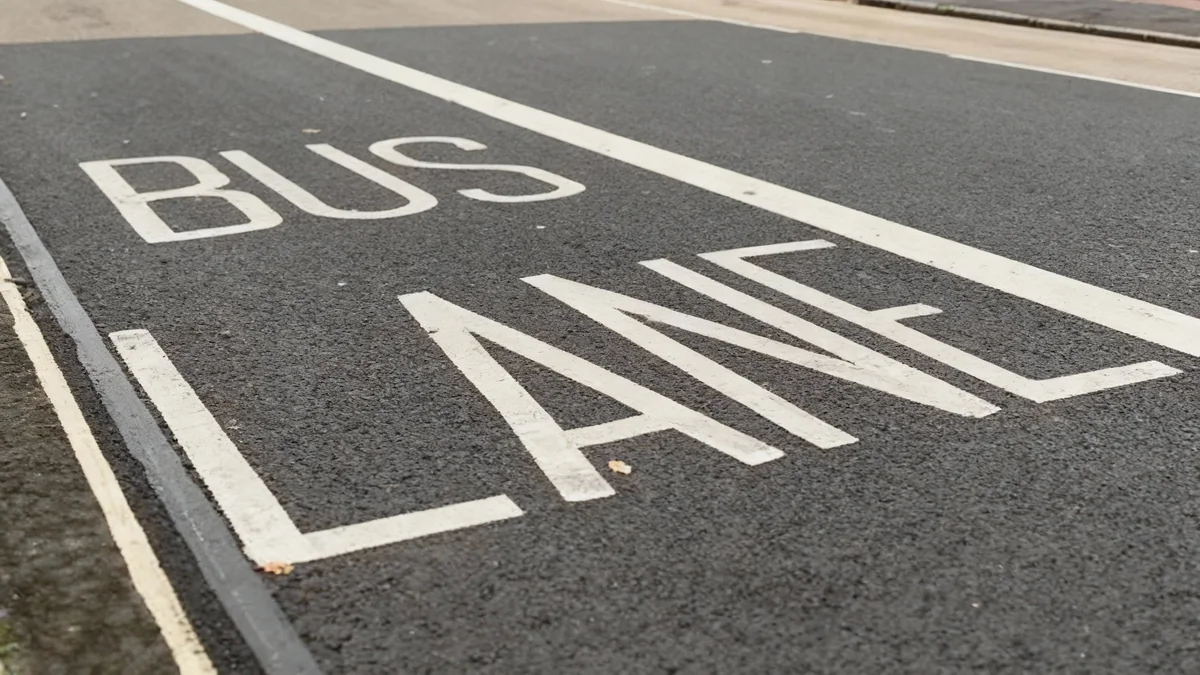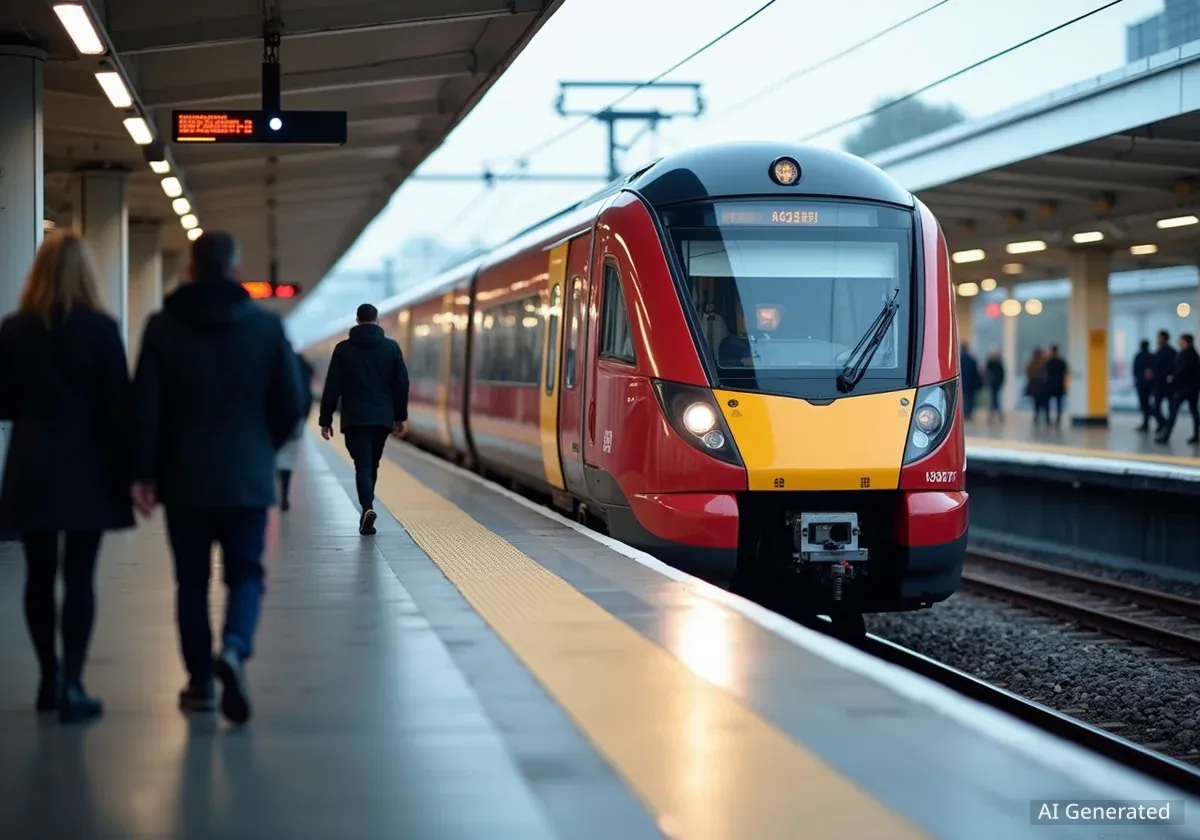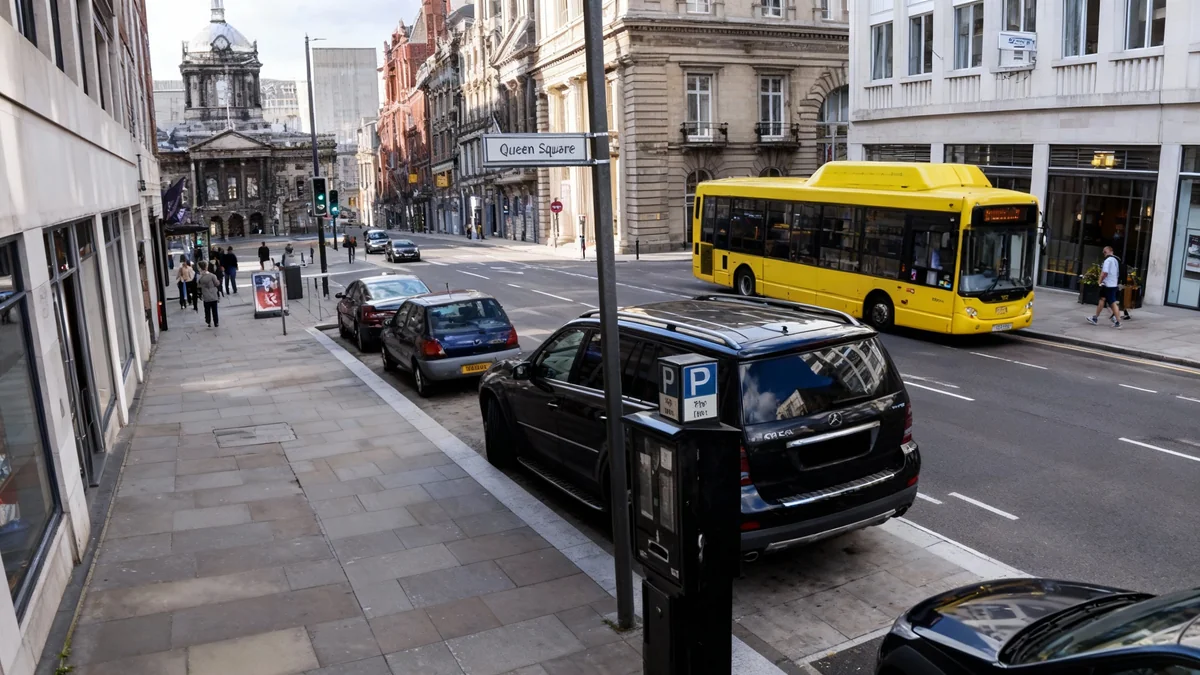Liverpool City Council has confirmed plans to introduce two new "experimental" bus lanes in the city. The new routes will be located on Longmoor Lane in Fazakerley and Upper Parliament Street in Toxteth, with an investment of approximately £125,000 allocated for the project.
To assess their effectiveness, the council will implement a six-month grace period where drivers who mistakenly enter the lanes will not receive fines. The announcement has drawn a mixed response from local councillors and residents.
Key Takeaways
- Two new experimental bus lanes are being introduced in Liverpool.
- The designated routes are Longmoor Lane in Fazakerley and Upper Parliament Street in Toxteth.
- A six-month introductory period will see no fines issued to drivers for using the lanes.
- The project is estimated to cost around £125,000.
- The plans have sparked debate among local officials and the public.
Details of the Experimental Scheme
Liverpool City Council has officially unveiled its proposal to reintroduce bus lanes on two key city routes. The initiative aims to improve public transport efficiency and reduce congestion in specific areas.
The first lane will be situated on Longmoor Lane in Fazakerley, a busy thoroughfare in north Liverpool. The second will be established on Upper Parliament Street in Toxteth, a central route connecting various parts of the city.
Six-Month Grace Period
A key feature of this trial is the council's decision to withhold fines for the first six months. This period is designed to allow drivers to adapt to the new road layouts and for the council to gather data on the lanes' impact without immediate punitive measures.
The total budget for implementing these two lanes is reported by the Local Democracy Reporting Service to be in the region of £125,000. This investment covers the necessary signage, road markings, and administrative costs associated with the trial.
Mixed Reactions from Officials and Residents
The announcement has not been met with universal approval. Some councillors representing north Liverpool have stated they were not given prior notification of the plans, raising concerns about communication from the city council.
The public response has been similarly divided, reflecting different perspectives on the city's transport needs.
Support for Public Transport
Some residents, particularly those who rely on buses, have welcomed the news. They hope the dedicated lanes will lead to more reliable and punctual services.
"I must be the only person that wants this back but then I don't drive, I use public transport all the time and I'm sick of being late for work because of so much traffic delaying my bus," said resident Jeni Meli, expressing her support for the initiative.
Fazakerley councillor Declan Henry offered conditional support, highlighting the need for a broader strategy.
He commented, "I agree that bus lanes could really help ease congestion and encourage the use of public transport but we have to have the infrastructure in place so that public transport is a convenient and cost-effective option."
Concerns Over Increased Congestion
Conversely, other residents and drivers fear the new lanes will worsen traffic problems on already congested roads. The stretch of Longmoor Lane has been singled out as a point of concern.
"[It's] bad enough as it is," commented resident Vicky Hogg, who described the local authority's plans as "an absolute joke." Her sentiment reflects worries that reducing road space for general traffic will lead to greater delays.
The History of Bus Lanes in Liverpool
This latest development marks another chapter in Liverpool's evolving relationship with bus lanes. The city's approach to traffic management has shifted significantly over the past decade.
A Decade of Change
In 2014, Liverpool City Council made the high-profile decision to scrap the majority of its bus lanes across the city. The move was popular with many motorists at the time but drew criticism from public transport advocates who warned of slower bus journey times.
However, after nearly a decade, the council began to reconsider this policy. In 2023, the first steps were taken to reintroduce bus lanes on a selective basis, signalling a potential shift back towards prioritising public transport on certain routes.
The introduction of these two experimental lanes on Longmoor Lane and Upper Parliament Street is the latest step in this ongoing process. The results of the six-month trial will likely influence future decisions regarding traffic management and public transport infrastructure across Liverpool.





